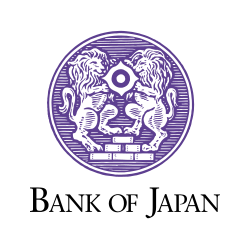
In April last year, the Bank of Japan (BOJ) introduced quantitative and qualitative monetary easing (QQE) to achieve the price stability target of 2 percent at the earliest possible time, with a time horizon of about two years. More than one year has passed since the Bank introduced QQE. Japan's economy has been on a path suggesting that the 2 percent price stability target will be achieved as expected, although we are only halfway there.
Real wages are falling drastically after the introduction of the famed QQE, is this effect temporary, or are we going to see Shinzo Abe's famed structural reforms solve the issue? … and fast!
Real Wages VS. Sales Tax Hike and FX-Based Inflation
If we look at the headline inflation figures, there is a big discrepancy which could lead to more imbalances in the Japanese economy. Real wages are falling drastically after the introduction of the famed quantitative & qualitative easing, is this effect temporary, or are we going to see Shinzo Abe's famed structural reforms solve the issue?
Base pay was reported to be unchanged in May from a year ago, while headline inflation figures represented by the consumer price index have grown 3.6 percent in June, largely due to the sales tax increase by 3 percentage points and higher food and energy costs related to the fact that Japan is a big net importer of energy.
As the structure of the Japanese manufacturing sector is changing and during the period of low inflation and historically high Exchange rate, many companies have started shifting their manufacturing base to Southeast Asia, resulting in yet another drag on the economy.
Blackrock Bullish on Japanese Equities , Does This Mean a Weaker Yen?
According to a recent statement by Blackrock’s Chief Investment Strategist for iShares EMEA, Stephen Cohen, “Valuations and the latest reforms unveiled by Japanese PM Abe provide an attractive entry level for investors.”
According to Blackrock, the diversification efforts relating to the Government Pension Investment Fund (GPIF) shifting its allocation from bonds to stocks is affecting the local market. Normally the Japanese yen moves in tandem with the stock market - when it rises, the yen falls, as demonstrated during the past few years.
According to Mr. Chone, “The confirmation that the effective corporate tax rate will be cut to below 30% has helped lift sentiment around Japan’s growth outlook. Every 2% tax cut is expected to boost real growth by 0.1%.”
Households Are Not Seeing Any Recovery, Abe Approval Ratings Falling
At the same time last week, the central Bank’s Deputy Governor, Hiroshi Nakaso, set out to praise the effectiveness of the BOJ’s policy measures. Stating, "The Regional Economic Report released by the Bank on July 7 reported the effects of the consumption tax hike on private consumption across Japan and all regions, have maintained their assessment that private consumption as a trend has continued recovering.” However at the same time the hard data for the final month of the second quarter has continued to show contraction in spending patterns with household spending dropping a hefty 3% YoY.
Average monthly income of salaried households came to 710,375 JPY, which is lower by 6.6% percent in real terms, according to data released by the Ministry of Internal Affairs and Communications in a preliminary report. These figures seriously question Mr. Nakaso's statement. Inflation is not going to keep company with falling real wages for a long while, unless we see another dramatic round of depreciation in the country’s currency.
It has all been confirmed by the latest poll results on the approval ratings of the author of the monetary easing policy in Japan - Prime Minister Shinzo Abe. According to recent surveys his approval rating has just dipped below 50%. Yesterday, the Nikkei newspaper published a report that the approval rating currently stands at 48%, which is 5% lower than previous polls and the disapproval rating of his cabinet has risen by 2% to 38%.
Should real wages continue to falter at the same pace, considering the fragile history of Japanese governments, there is not much time left for Abenomics to start working. Will this push Mr. Abe to increase pressure on the central bank again and can the Japanese economy handle another round of easing? After the previous round of Japanese yen depreciation, living costs related to the country’s dependency on energy imports has substantially impacted Japanese households.


















